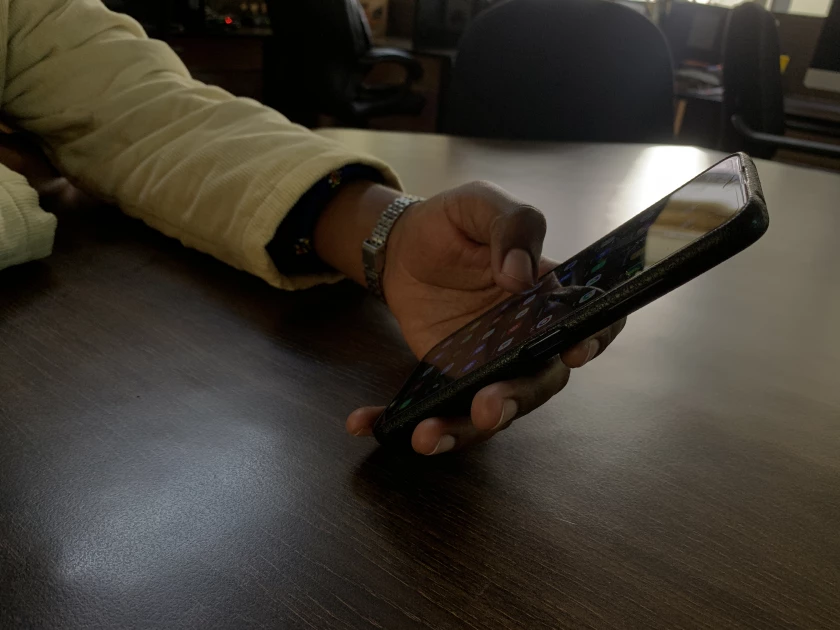Tips on how parents can protect their children online
Published on: May 06, 2023 02:41 (EAT)

Illustration shows a person operating a mobile phone.

Audio By Vocalize
Children are spending more time online than ever before.
In this digital era, a child goes online for the very first time every half a second, this is according to UNICEF. through technologies such as computers, television, gaming console, smartphones etc children have access to insurmountable information and sifting through them can pose a challenge.
Although the internet is arguably one of the best tools in modern technology, if not used in the right way, it can cause more damage than good.
Children on the internet may experience cyberbullying, and violent content including messages that may incite self-harm, data breach and sexual exploitation, these are just but the few dangers that lurk in these spaces and target oblivious children.
Below are some tips to introduce some cyber safety to your children
1. Talk openly with your child about their online activity
You should start talking to your child about the dangers in the internet as soon as they access it. Talk to them about what they consume, talk about the sites or the apps they use. Ask them what they think is appropriate or the opposite. Now more than ever, online presence and reputation matters, talk to your child about it, and how they must behave or represent themselves in such spaces.
2. Keep screens and devices where you can see them
Always keep an eye on your child's online activity, especially if they are younger. Keep the computer in a visible location in the house so that you can easily monitor what your child is doing and what they are viewing online. You can disable Wi-Fi passcodes on mobile devices so that your children cannot access the internet without your knowledge. You can also try to come to an understanding that tablets, laptops, and gaming devices are not allowed in bedrooms.
You might also think about looking through your child's browser history after they have been online to see which websites they have visited if they are younger. This strategy obviously becomes more challenging as kids become older and learn how to delete history, which is another reason to be upfront about internet safety.
4.Know who your children’s online friends are
As adults, we know that some people online aren’t who they say they are, but children and young people can be alarming naïve about who they are chatting with if they are not taught to be cyber wise from an early age.
Make sure you become friends and contacts within your child’s social media circles and ensure you monitor posts. Your children may resist but tell them that is one of the conditions for you to allow them access
5. Be ‘share aware’ to protect your privacy
if your child regularly uses social media, they should be informed of the dangers associated with posting private information or photographs online. you should teach children to be cautious and thoughtful about what they post and share, even though kids will not completely comprehend the repercussions of disclosing personal information online.
Encourage your kids to consider if the data they are posting—such as their name, phone number, home address, email, or the name of their school—is information they would give a complete stranger. do not post it if the response is "no." it is important for parents to keep control of their family’s digital footprint.
Teach your child to stay in control of their digital footprint, by only sharing with people who they know and trust. Rather than posting to all their friends on social media, encourage them to be selective and use the privacy settings on the social media platforms they use.


Leave a Comment